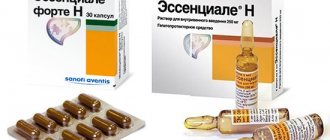Every woman carrying a child must undergo many laboratory and instrumental examinations that will help assess the state of health and minimize risks for the expectant mother and the fetus itself. One of the most important tests is blood testing for antibodies during pregnancy.
Testing allows you to identify foreign microorganisms in the blood serum, as well as assess the compatibility of the fetus with the mother’s body. Also, such an analysis is carried out if an infectious disease is suspected and allows you to determine whether the body can independently resist the disease or whether it will require taking medications.
The essence and significance of the procedure
Antibodies (AT) are cells of the immune system that can recognize and destroy foreign microorganisms, including viruses, toxic components and bacteria. Their main task is to perform the protective function of the body. At their core, antibodies are proteins formed from white blood cells.
During pregnancy, ATs can be produced against the fetus itself, since it contains genes from the father that are foreign to the mother's body. Most often, this happens when the Rh factor and blood group are incompatible. There are several types of antibodies, each of which belongs to one of 5 classes of immunoglobulins: IgA, IgE, IgM, IgG, IgD.
Each of these subspecies is responsible for a specific function. Thanks to AT testing, it is possible to identify a fungal, viral or bacterial infection. Based on the amount of proteins in the blood serum, we can conclude whether such changes are a protective reaction or whether the body is fighting an infection.
The analysis also makes it possible to determine whether medications are required to combat the disease or whether the immune system can cope on its own. The study also allows us to identify the stage of the disease and predict the further course.
If a woman was already pregnant, but had a miscarriage, an analysis is prescribed to determine the antibodies to the partner’s sperm. Often, fetal rejection occurs precisely because ATs perceive it as a foreign object and turn on the protective forces of the immune system.
Why do antibodies appear in the mother's body?
An immunological conflict (the mother's body produces antibodies that attack the fetus) can arise due to incompatibility in both blood group and Rh.
Blood group incompatibility (so-called ABO), causes:
- 1 group women, 4 group men (100% incompatibility),
- Group 2 women, group 4 men (66% probability),
- Group 3 women, group 4 men (also 66%),
- Group 1 women, group 2 or 3 men (50% chance of incompatibility),
- Group 2 women, group 3 men (50%),
- Group 3 women, group 2 men (25%).
The isohemagglutinins “living” in the blood of the expectant mother stand in opposition to the antigens in the blood of her partner - this is called incompatibility.
By the way, the body of some women takes up arms against foreign blood long before conception. The reason for this may be incorrect blood or serum transfusion (without taking into account group compatibility, that is, ABO), or vaccination.
In addition, women with:
- frequent miscarriages,
- abortion on the big line,
- premature pregnancies,
- death of the fetus
- births with cesarean section,
- births with complications (such as premature abruption or manual separation of the placenta).
Antibodies to TORCH infections
A blood test for antibodies during pregnancy can identify dangerous diseases, including rubella, toxoplasmosis and herpes. Such infections pose a threat not only to the expectant mother, but also to the fetus. Women who become infected in the first trimester are at greatest risk. Infection in the early stages can cause various complications, including abnormalities in the fetus or miscarriage.
That is why doctors strongly advise expectant mothers to conduct an analysis before conception in order to be able to receive timely treatment. Based on the results of the analysis, the doctor will be able to draw a conclusion and find out whether the body has previously encountered an attacking infection, when the infection occurred and whether there is a threat to the fetus.
Test results are deciphered as follows:
- negative IgM and IgG levels. The result suggests that the pregnant woman’s body has not previously encountered a specific infection, so the risk of infection is high;
- the presence of antibodies of the IgM and IgG types. Indicates a recent infection, which is very dangerous for the child;
- positive IgM and negative IgG. The result indicates that the infection occurred during pregnancy, which is dangerous for the life of the unborn baby;
- presence of IgG and absence of IgM. The infection occurred before conception, so there is no threat to the fetus.
The standard test for TORCH infections is the absence of IgM type antibodies and a slight presence of G proteins. If IgM type antibodies are present in the blood serum, this indicates an infection, which is why in most cases testing is prescribed for this particular type of immunoglobulin.
In case of doubtful tests, additional laboratory tests are prescribed that will help identify the overall clinical picture and prescribe a suitable treatment regimen.
What pathology is detected?
Pregnant women are routinely sent to take tests for antibodies to the following pathologies.
TORCH infections
This type includes infections such as toxoplasma, herpes, cytomegalovirus and rubella . It is recommended to be tested for them when planning a pregnancy, so as not to conceive a child during the acute period of infection. In the first trimester of pregnancy, the doctor always prescribes a test for antibodies to Torch infections.
They are extremely dangerous for the fetus, as they cause deformities, abnormal development of organs and systems, as well as miscarriages and stillbirths.
Doctors determine whether there is an infection in a woman’s body, whether it is currently active or dormant, and also whether her immune system is familiar with such viruses at all. This is indicated by the levels of IgG and IgM immunoglobulins.
Rhesus conflict
If the mother has a negative Rh factor, and the child has a positive father, then allogeneic antibodies to the fetal red blood cells begin to appear in the pregnant woman’s body.
During the first pregnancy they are usually not detected, but in subsequent pregnancies the woman’s body is ready to attack foreign red blood cells. This can lead to fetal death. To prevent complications, immediately after the birth of the first child, a woman is given Anti-D gamma globulin .
During the second pregnancy, the antibody titer is strictly controlled and if it increases, additional gamma globulin will be reintroduced according to the regimen.
Group conflict
AB0 conflict occurs as a result of incompatibility of the blood groups of the fetus and mother. This situation is detected often, including during the first pregnancy. This incompatibility does not cause serious harm, but the titer of group antibodies still needs to be monitored. There is no prevention or treatment for group conflict .
Antiphospholipid syndrome
Antiphospholipid antibodies increase in pregnant women if an autoimmune disorder occurs. Phospholipids are part of the tissue of nerve and blood cells, the walls of blood vessels, and are also involved in blood clotting. The immune system can destroy them and then antiphospholipid syndrome occurs.
The primary syndrome goes away on its own, but the secondary one is dangerous due to thrombosis and an increased risk of thromboembolism, stroke, heart attack, and disruption of the brain, liver and kidneys.
Group antibody analysis
Another important test for pregnant women is blood testing for antibody titers. The risk of developing Rh conflict is present only if the woman has a negative Rh (Rh factor) and the baby is positive. In this case, the likelihood of the absence of Rh conflict is present only during the primary pregnancy, since during the first pregnancy, anti-D bodies are usually produced in insufficient quantities.
During the second and third pregnancies, the risk of developing anti-Rhesus antibodies increases, which increases the likelihood of the baby's death. It is worth considering that a conflict in the AB0 system can develop even during primary pregnancy. But this only happens if fetal blood, incompatible with maternal blood, enters the woman’s bloodstream in large quantities.
This reaction is due to the fact that in this case the production of anti-group antibodies is activated. Most often, this violation does not lead to dangerous consequences and deviations, but in any case, the woman will have to be constantly monitored by a doctor to minimize the likelihood of complications.
The following factors can provoke the occurrence of group antibodies or Rh conflict:
- late termination of pregnancy;
- prematurity;
- transfusion of inappropriate blood into the body;
- previous births accompanied by multiple complications;
- placental abruption;
- ectopic pregnancy (with incompatible Rh in the fetus).
Currently, there are many preventative methods to prevent complications due to Rhesus conflict. If you are regularly examined by a doctor, the risk of complications will be low.
It is recommended to donate blood for antibody titers even before conception. This will allow you to find out in advance whether the Rh factor of the parents is compatible
How to lower high antibody titers during pregnancy
Obstetricians-gynecologists try to keep even a minor Rh conflict under control. To do this, the pregnant woman is administered anti-Rhesus immunoglobulin D at 28 weeks of gestation. This treatment stops the production of antibodies that destroy fetal red blood cells. Additionally, another injection is given after delivery.
If Rh conflict causes complications, additional treatment is prescribed:
- When hemolytic disease occurs, intrauterine blood transfusion is performed.
- Plasmapheresis produces a good effect in the second half of pregnancy. The procedure consists of cleansing a woman’s blood of antibodies that have arisen.
- Hemosorption is possible. Women's blood is filtered from toxins, and then poured back into the vascular bed.
- If at 24 weeks of gestation the growth of antibodies continues to increase, the woman is given drugs that stimulate active maturation of the lungs in the fetus for subsequent stimulation of labor.
Important! After birth, the newborn may be given a blood transfusion, phototherapy, or plasmapheresis.
If you have a negative Rh factor, be sure to plan your pregnancy under the supervision of a doctor, and immediately register after conception. This will protect you and your baby from the serious consequences of Rh conflict.
Preparing for analysis
For testing results to be reliable, a woman needs to know how to submit biomaterial for testing. The leading gynecologist should give recommendations for preparation to a pregnant woman. Usually the procedure is carried out at 8 weeks of gestation, and then 2 times in the second trimester.
The only exceptions are those cases when future parents have a conflict of Rh factors. In such a situation, blood is donated for testing every month. You need to prepare for the test 3 days before the blood draw. In this case, you need to adhere to certain recommendations.
Before analysis it is prohibited:
- eat fatty and spicy foods; you also need to refrain from consuming fried foods;
- drink coffee and soda;
- carry out physical procedures.
Only venous blood is suitable for the procedure; biomaterial from a finger is not used. Blood sampling is carried out in the morning on an empty stomach. Decoding the results usually takes no more than 2 days, after which a form with the results is given to the woman.
Why should pregnant women get tested?
An antibody test must be taken during pregnancy, as it will help the doctor understand:
- what type of microorganism develops and how strongly;
- how a pregnant woman’s body reacts to the fetus, whether it rejects it or not;
- is there a Rh conflict in a “negative” mother and a “positive” fetus;
- Is it worth using medication to treat the existing pathology?
If an infection is detected in a timely manner or a sharp increase in antibody titer due to Rh conflict, the doctor, with the help of drug treatment, will be able to prevent the development of complications in the unborn child.
Deviations from the norm and possible consequences
The concentration of each type of AT has its own standards:
- IgA content – from 0.35 to 3.55 g/l;
- IgG content – from 7.8 to 18.5 g/l.;
- IgM content – from 0.8 to 2.9 g/l.
If the content of protein elements deviates from the norm, the risk to the baby’s life increases, and such a violation can also cause abnormal development of the fetus. Depending on the type of immunoglobulins present in the blood serum, the consequences may be as follows:
How many times can an ultrasound be done throughout pregnancy?
- the appearance of antibodies to toxoplasmosis. An increased likelihood of infection with toxoplasmosis is present in the initial stages of pregnancy. This pathology can lead to improper development of the liver, spleen and central nervous system. When infected with toxoplasmosis, many doctors recommend abortion;
- presence of antibodies to rubella. Due to the increased likelihood of heart pathologies, damage to eye tissue and nerve fibers, an abortion is also recommended in the first trimester. Rubella infection in the third trimester is usually not accompanied by such dangerous disorders, but can lead to developmental delays;
- cytomegalovirus infection. This pathology is very dangerous because it leads to damage to the baby’s brain and organs. If it is detected, doctors insist on abortion;
- an increase in TPO concentration signals the development of hypothyroidism and can provoke postpartum thyroiditis;
- increase in the concentration of antiphospholipid antibodies. Increases the likelihood of immune aggression. Antiphospholipid syndrome often leads to miscarriage and serious intrauterine pathologies due to problems with blood flow in the placenta.
Rh conflict is no less dangerous for the unborn baby and can cause the development of serious disorders. Most often, it leads to a disruption in blood circulation and insufficient oxygen supply to the fetus. In addition, Rh conflict increases the risk of developing hepatitis, anemia, pathologies of the brain and cardiovascular system.
To determine how high the risk is for the fetus, you need to take an AT titer test throughout pregnancy. In this case, doctors will be able to take the necessary measures in a timely manner.










